On Monday last week (June 25th, 2018) the U.S. Food and Drug Administration (FDA) made a historic announcement, approving a new CBD-based drug called Epidiolex. This came three months after a positive recommendation by the Food and Drug Advisory Panel. Experts are now hopeful that this approval will unleash a new wave of studies to find out more pharmacological potential of CBD and other cannabinoids in the Cannabis plant.
Epidiolex is a liquid drug developed from a unique strain of cannabis developed by GW Pharmaceuticals PLC. The strain contains high concentrations of CBD (cannabidiol) and very low THC. The drug treats two severe forms of epilepsy, that do not respond to drugs, that is, Dravet syndrome (DS) and Lennox-Gastaut syndrome (LGS). Epidiolex serves as the first medicine containing a compound derived from Cannabis to be given approval by the FDA.
Rescheduling is required by the DEA before Epidiolex can become Available
GW Pharmaceuticals, the designers of Epidiolex and its subsidiary, Greenwich Biosciences announced in a press release that the DEA will have to reschedule CBD before it can be available for sale in pharmacies.
Cannabis is currently classified as a Schedule I drug and its advocates have been trying to reschedule the drug for decades. Therefore, last week’s announcements could represent the long-awaited beginning of the rescheduling process. Even if not for Cannabis, at least for CBD.
In the press release, GW estimated that this might occur within the next 90 days. However, until the DEA issues a statement substantiating these claims, we do not have any options but to wait and see.
Although a lot of Cannabis’ advocates received the news with joy, some still had their reservations. These argue that if Cannabis is only going to be moved from Schedule I to Schedule II, then it may never be descheduled. If this becomes the case, pharmaceutical companies would have the monopoly on legal Cannabis compounds such as CBD. Descheduling would even the playing field by giving individual States the chance to formulate their own rules.
Strong Evidence Inspired Approval
The FDA considered three well-controlled clinical trials before giving Epidiolex the green light. The studies presented a strong case that the pharmaceutical-grade CBD used to design Epidiolex was efficient in curbing some of the most severe symptoms of the two types of epilepsy which respond poorly to other medication.
GW presented the first study last spring at the American Academy of Neurology’s yearly meeting in Boston, showing positive clinical results that supported Epidiolex. This was followed up a month later where the second study was published in the New England Journal of Medicine, indicating positive results of the drug in children with Dravet syndrome. About 43% of the children in that study who were treated with Epidiolex reported a reduction in seizure episode by half, and 5% stopped having seizures completely. A year later, another favorable study was published in the same journal by the same researchers, this time using a smaller dose of Epidiolex in patients with Lennox-Gastaut syndrome.
Although Epidiolex is designed to treat these two forms of epilepsy, medical professionals are expected to try its efficacy in other conditions “off-label”. As a result, this drug has a huge capacity of affecting more than just just people suffering from DS and LGS.
Scott Gottlieb, the FDA commissioner, took this as an opportunity to remind anyone with an interest in the field that, “Advancing sound development programs that properly evaluate active ingredients contained in marijuana can lead to important medical therapies.”
How much is Epidiolex Expected to Cost?
The success of Epidiolex in combating Lennox-Gastaut and Dravet syndromes is largely hinged on its price after it hits the shelves. If it is too expensive, most people may opt for cheaper alternatives. For instance, Cannabis-derived treatments such as CBD oil extracts are readily available in most parts of the country, whether legally or illegally. Consequently, some patients may opt for these cheaper alternatives, most of which lack the high pharmaceutical-grade standards that FDA-approved drugs such as Epidiolex have to go through.
Epidiolex is expected to cost between $2,500 – 5,000 as reported by the New York Times. If insurance companies agree to cover these costs, patients suffering from Lennox-Gastaut and Dravet can find a cheap and safe alternative and avoid the temptation of using unapproved CBD formulations.
Parting shot
As mentioned earlier, the approval of Epidiolex could open the gates for deeper research into other Cannabis-derived medicines. Cannabis contains more than 400 compounds, of which CBD and THC represent just two. Scientists now believe the rest may have medical applications as well.
Besides CBD for epilepsy, researchers are also actively studying CBD’s therapeutic potential, from relieving pain, reducing weight, treating skin diseases, improving mood, alleviating depression, to soothing severe nausea. For a full list of all the conditions scientists have been testing with CBD, go to this page. As for now, both patients and other stakeholders in the industry are looking forward to seeing Epidiolex available as an alternative therapy as soon as possible.

